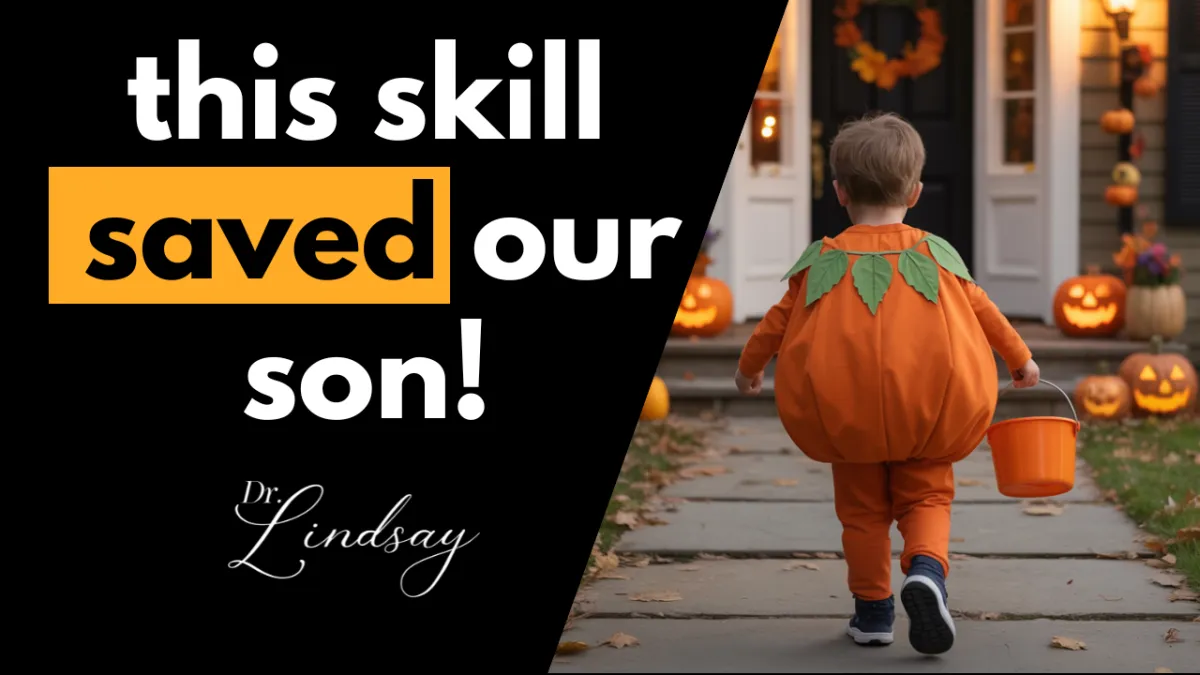
We Lost Our Son on Halloween: Here’s What Saved Us


We lost our son on Halloween night. Just for 90 seconds...but it felt like forever.
That night, in a crowd of trick-or-treaters, we learned a parenting lesson we’ll never forget. And the skill that brought us back together? It’s something every parent should teach before Halloween hits.
Keep reading for the one safety skill that saved us plus two bonus tips rooted in child psychology that’ll help you create a Halloween that’s safe, fun, and actually works for your child’s personality.
Tip #1: Teach Your Child This Simple Safety Skill
That Halloween, we approached a house with a circular driveway. Three kids ran to ring the doorbell, but only two came back. My heart dropped.
After frantic searching, a kind stranger called my phone because my son had memorized my number thanks to a safety camp earlier that summer. That one small skill changed everything.
Here’s what to do:
By age 4–5, many kids can memorize a phone number. Start practicing today.
Before heading out to trick-or-treat, write your phone number on your child’s hand or forearm using a Sharpie. Especially for younger children.
Practice reciting it in the days leading up to Halloween so it sticks especially under stress.
Between crowds, darkness, and costumes that block vision, Halloween is chaotic. This one skill gives your child a safety net they can carry with them.
Bonus Tip #2: The Best Time to Buy a Halloween Costume
After 17 years of parenting, I’ve learned that when you buy the costume matters as much as what you buy.
Best time to buy? Early to mid-October.
Here’s why:
Kids need time to brainstorm costume ideas and chat with friends.
Wait too long? You risk sold-out sizes.
Buy too early (like those tempting September deals at Costco)? You’ll likely be buying twice—because they’ll change their mind.
🛑 Set expectations upfront:
“We can buy this costume today, but if you change your mind later, we’ll need to use something we already have or make one at home.”
This teaches decision-making, commitment, and that choices have consequences without the meltdown.
Bonus Tip #3: Respect Your Child’s Personality on Halloween
Not every kid loves Halloween. And not every parent does, either.
Here’s what child psychology tells us:
Extroverted Kids:
Thrive on the social stimulation—crowds, costumes, and door-to-door fun energize them.
Halloween might genuinely be their favorite night of the year.
Introverted Kids:
May feel overwhelmed by crowds, loud noises, and social pressure to talk to strangers.
Trick-or-treating can be draining, not fun.
What to do:
For introverted kids:
Stick to familiar neighborhoods
Keep outings short
Take breaks between houses
Let them opt out of group events without shame
For extroverted kids:
Plan a longer route
Invite friends
Let them lead the pace
Add in social events like community fairs or school parades
And if you’re an introverted parent with an extroverted child?
Divide duties, maybe you manage candy at home while your partner handles trick-or-treating.
Schedule in recharge time before or after the festivities.
The best Halloween? It’s not the one that looks good on Instagram. It’s the one that honors your child’s personality and your own limits too.
Halloween doesn’t have to be stressful. With a little preparation and a whole lot of psychology, you can create a holiday that’s fun, safe, and tailor-made for your child.
✅ Teach them your phone number
✅ Time your costume shopping wisely
✅ Honor their personality and energy level
💬 Got a Halloween tip that’s worked wonders in your house? I’d love to hear it.
